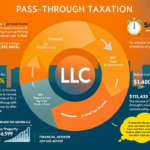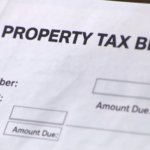Property tax revenue is typically used to pay for municipal projects and services like fire departments, police enforcement, community recreation, and schools. Property taxes may be exceedingly expensive for individual homeowners, although these services benefit all residents. The same is true for property tax on rentals. They tend to increase slowly over time, especially when living in a bigger city or on waterfront property. Tax expenses continue to accrue even after you have paid off your mortgage.
While you will never be tax-free while owning a house, there are a few basic strategies you may apply to reduce your property tax on rentals. Let’s talk about that.
How to Plan for Increases in Property Tax on Rentals
Besides limiting assessments, states have other options for controlling property tax revenue growth. Some ban local governments from raising millage rates, while others limit overall tax income increases.
Your loan professional sends an escrow account disclosure early each year if you pay property taxes on rentals via an escrow account linked to your mortgage. The projected yearly cost of property taxes and insurance are included in this statement.
Look for Exemptions
Religious and government groups are not the only ones who benefit from exemptions. If you fit into one of the following categories, you may be eligible for an exemption. Tax rates are reduced in several states and municipalities for:
- Seniors or veterans
- People who have a specific disability
- Industrial properties
- Rental properties
To check if you qualify for an exemption, contact your tax authorities.
Look at Your Tax Card
Few landlords are aware that they may get a copy of their property tax cards from the local assessor’s office by going to the town hall. The tax card gives the homeowner access to knowledge the municipality has accumulated over time about their property.
As you go over this card, make a note of any inconsistencies and bring them up with the tax assessor. The assessor will either remedy the problem or re-evaluate the situation. This technique may appear to be ridiculously easy, yet mistakes occur all too often. If you can locate them, the municipality is responsible for correcting them.
How to Contest Significant Increases
When it’s in your best interests to engage in a dispute? If you’re a property owner, you may be able to save money by appealing your property taxes if you believe your property’s worth has been overvalued.
If you want to win your property tax dispute, you’ll need to do some planning ahead of time. Being aware of the facts first is the most successful strategy to appeal property taxes. Paying on time, being organized, and creating reminders are all examples of this strategy.
Contact Your Local Assessor
It’s usually a good idea to make sure you get all of the deductions you’re entitled to receive. This might happen if you examine your property assessment for the first time. You may also conduct your homework by contacting the local assessor’s office directly at any time.
Your property tax rate may be adjusted without the requirement for an appeal if the County Assessor investigates the grounds for your dispute and discovers an error, such as the wrong number of bedrooms.
When/How to Raise Rent to Cover Increased Costs
As someone who pays property tax on rentals, you’ll likely need to increase rent to make up the difference when taxes increase. Before upping the rent, conduct some market research and figure out the going rate in your area.
You could even hire a realtor to perform a comparative market analysis. Raising the rent too much will most likely result in tenant dissatisfaction, and you may lose a good renter who seeks a less expensive option.
Depending on the status of the market, a three to five percent raise every year is a decent rule of thumb. Check to see if your rent rise is in line with municipal restrictions and rent control legislation. To find out how much notice you need to give, consult your state regulations and your lease agreement.
In many countries, a minimum of 30 days’ notice is required. The easiest approach to notify your renter of a rent increase is in writing, which may be mandated by local landlord-tenant laws or your lease agreement.










